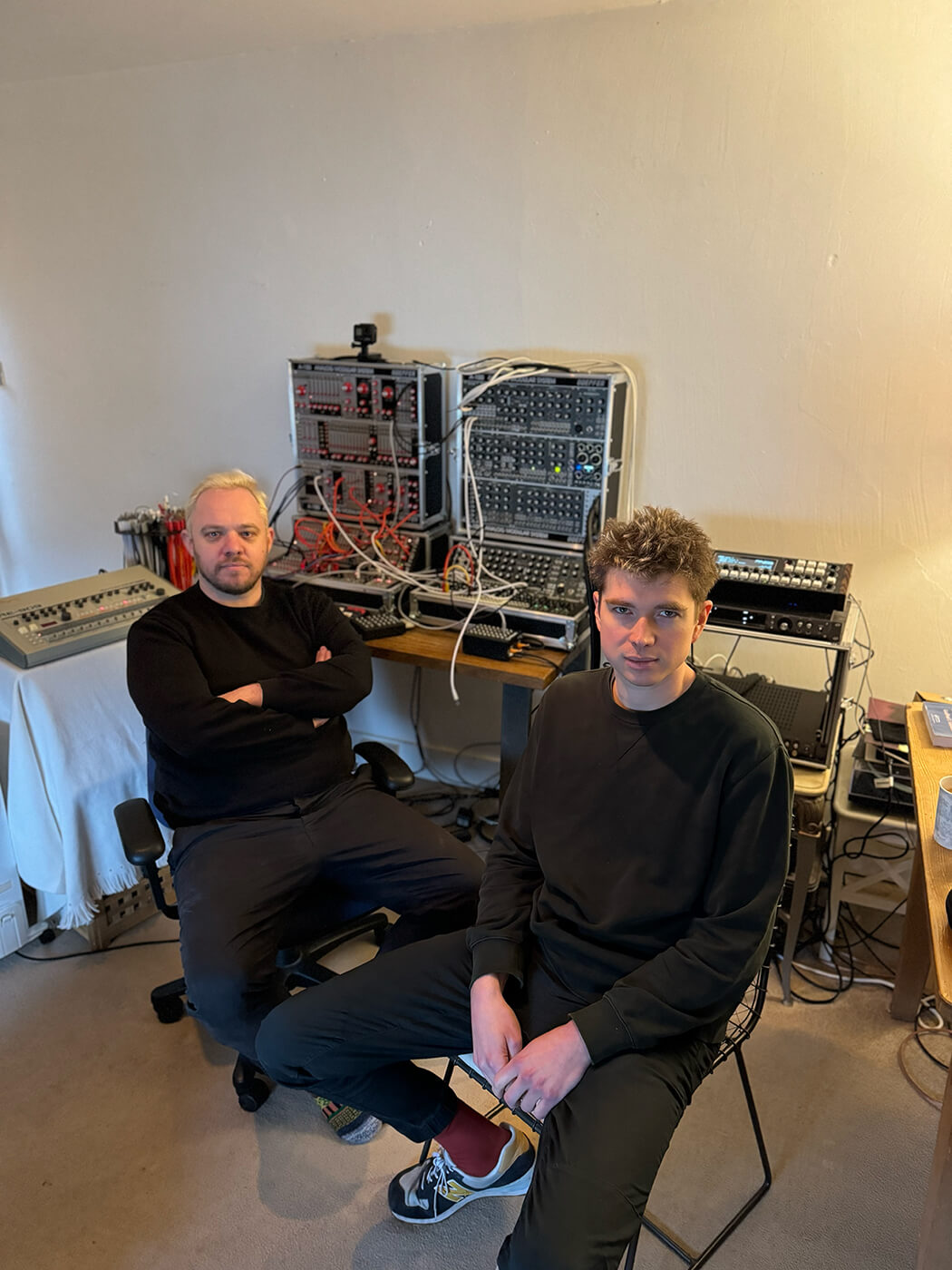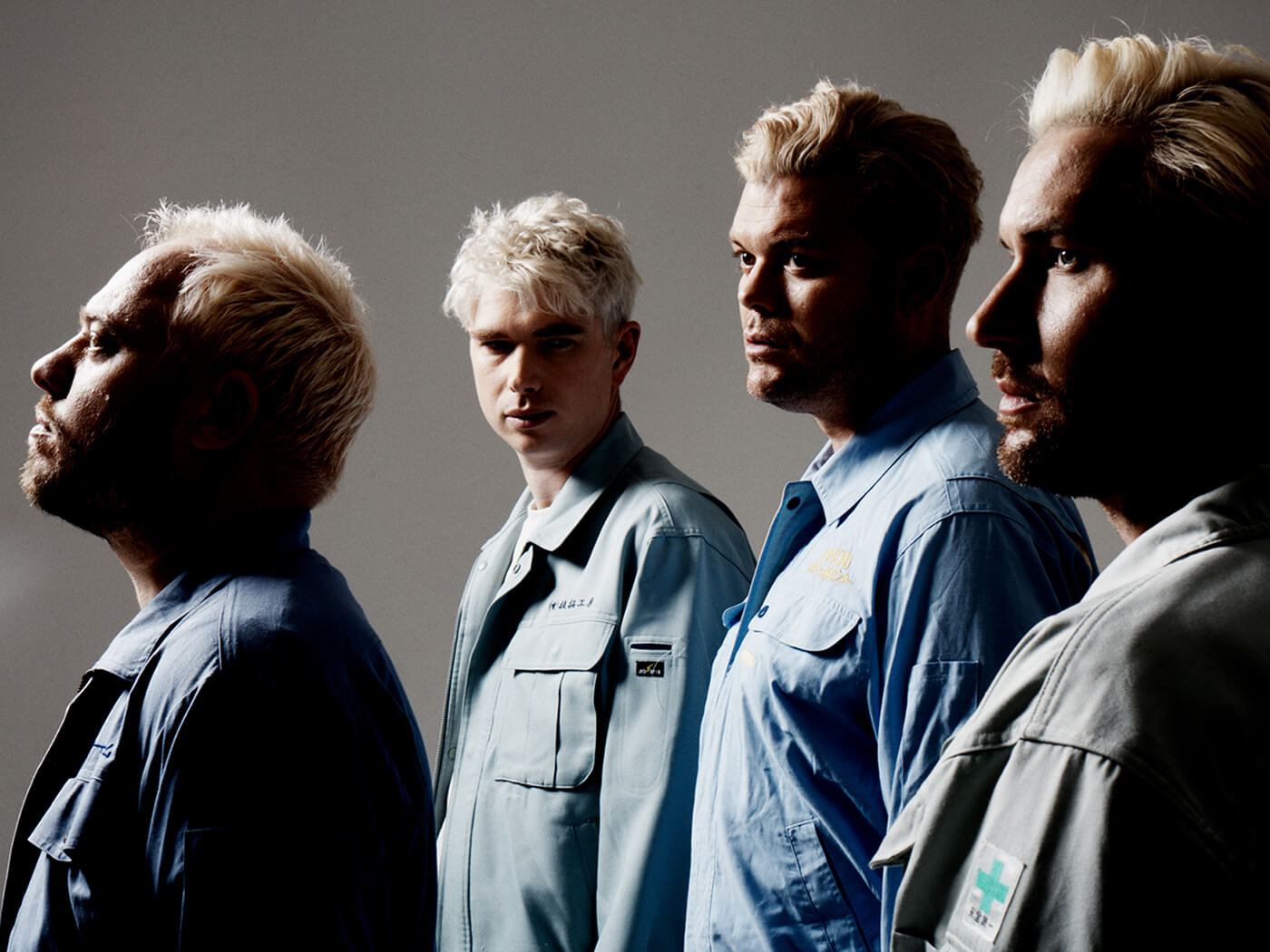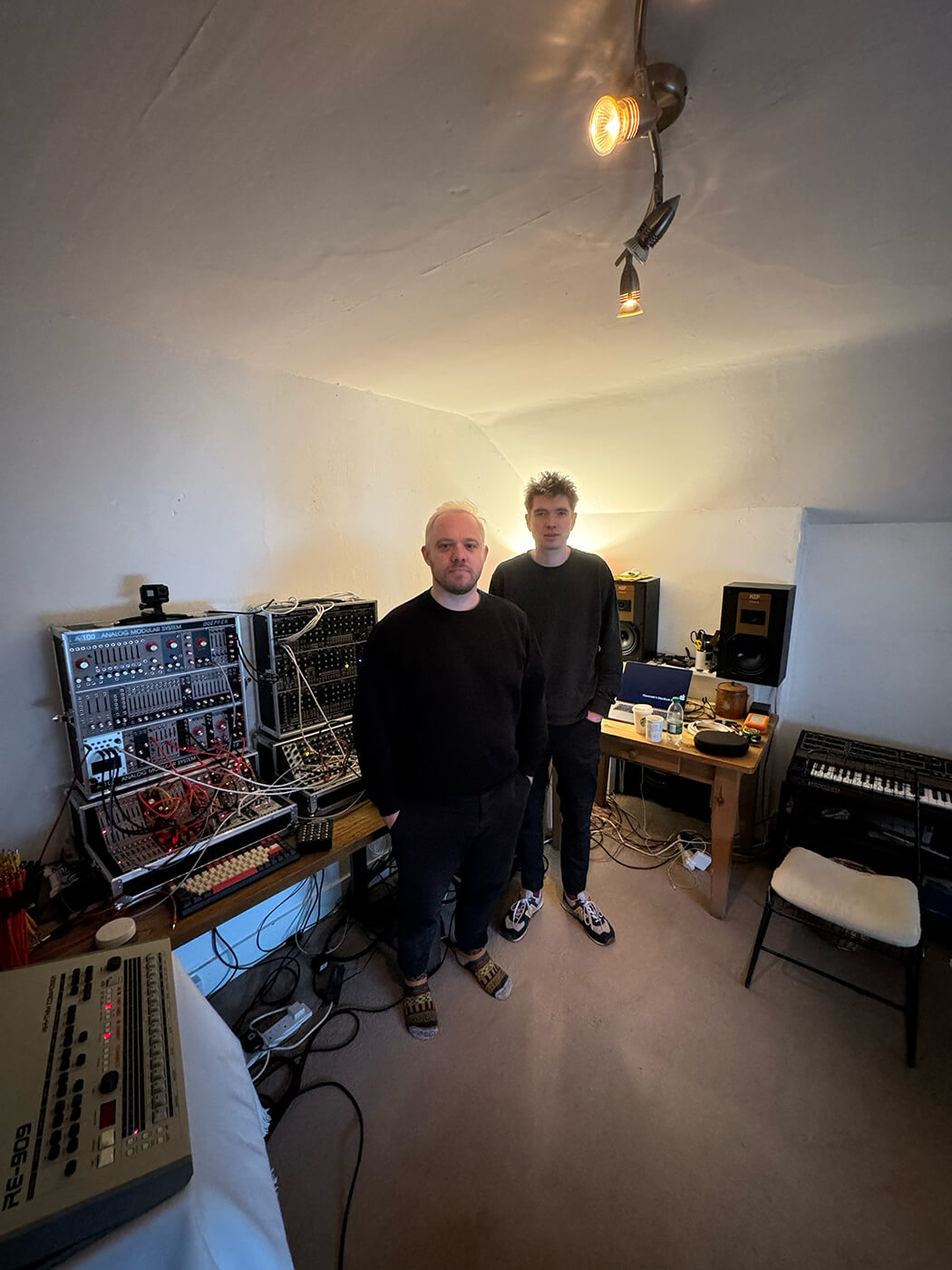Everything Everything: “You’ve got to keep pushing”
The art-pop four-piece discuss making music, working as a team, and the future of AI

Everything Everything
“There are loads of things in the world I hate, and there are other things I’m angry about, but I get it across in a different way now,” Jonathan Higgs tells me. The frontman of Everything Everything is discussing the inspiration for the band’s new album, Mountainhead, which came out on 1 March before the Manchester art-pop quartet’s UK tour.
- READ MORE: REZZ just wants to keep it simple
“Something like Mountainhead is clearly not a positive outlook but it’s not entirely negative either. There’s a lot of humanity on show.”
It’s a record that fits the zeitgeist: full of discussion about powerful figures, “crypto wankers”, and Andrew Tate-esque individuals. Wild Guess opens the record, and it starts with a drone sound courtesy of guitarist Alex Robertshaw.
“It was a sample of my voice singing that I made a synth out of. I’ve had it since 2014,” he tells me. “And I’ve always liked the sound of it – how silly it sounds. Especially when you can edit the MIDI to bend. I’ve always been a fan of early Aphex [Twin] and that sort of stuff, all the Ambient Works. There’s a load of those sorts of choral voice synths, So I made my own which isn’t anywhere near as good, but it’s got its own feel.”
Robertshaw has been EE’s guitarist since 2009, and he looks after production too. It’s at his studio at home where I meet him and Higgs, the principal songwriters of the band. He describes himself as always having been “the guy in front of the computer,” and he’s taken a more prominent production role since the band’s 2015 album Get To Heaven.

He explains that the two of them will work in Ableton Live and “get an idea going,” sending it between each other and gradually building the song up. To begin with, they just use Ableton’s stock sounds, before using their gear when it comes to recording the track.
With Mountainhead, Robertshaw anticipates a misconception – people may assume an absence of guitar recordings, but there’s likely more than on 2022’s Raw Data Feel. “But a lot of these guitars are run through modular synths,” he says, “Or they’re played in a way that makes them sound like they’re not guitars. I saw people saying they like the synths at the end of Cold Reactor, but it’s actually guitar.”
Though the more techy side of things sit firmly in Robertshaw’s domain, Higgs chimes in here: “[Robertshaw] doesn’t really use classic guitar tones, which used to be what people say you’re meant to do. Now, people can’t even tell what’s the guitar anymore.”
Compared to Raw Data Feel, Mountainhead avoids too much signal processing. “I like the idea of tracking into Ableton and keeping the amount of EQ’ing and everything to a minimum … You’re continually fixing things when you put things in. And if they’re not right when they went in the first time, you’re forcing something.”
And Robertshaw prefers not to use synth plugins, describing them as “super complex.” He says, “You get the soft synth but there’s also a layer of effects, or there’s some crazy routing that you can’t redo.
“I find that these big sounding synths that – they sound great on their own, obviously – don’t work with a band. You’ve got four guys lined up with their instruments. And you want to put some synths on it. All of a sudden, you’ve got a lot of stuff in a track, and you want to keep it. You want to make sure everything’s got its own space.”
I ask whether the band has perhaps gone back to basics with Mountainhead, but Robertshaw says it’s more that the process has become streamlined.
“I feel like I’ve always wanted to get away from the computer,” he says, “And as our career’s gone on, I’ve amassed enough gear to be able to do that. But when we started, it was like you just use what you’ve got, and there’s nothing wrong with that.”

He explains that, now, the band will lay down drums and bass in a studio before he works on the tracks at home. He might go back and change the drums and synths before they finally add the vocals.
The gear the band use on Mountainhead is the same as the gear they used for Raw Data Feel. “The Cwejman stuff is what I use for most of the record. Like, I’ll put all the guitars through there and use the filters to EQ … I use what’s there. There’s nothing really new in the studio.”
That said, their process of making music has evolved over the last decade and a half. Next year marks 15 years since Man Alive was released, and Robertshaw explains that it’s a gradual evolution. He describes hearing younger bands making music together in one room, perhaps just with a guitar and a laptop, and it makes him feel nostalgic.
“Now, it’s a different process,” he continues. “You’re writing for multiple instruments – your head’s not like, ‘I’ve got a guitar, here’s a chord sequence, let’s write!’”

We had to talk about Higgs’ use of artificial intelligence on Raw Data Feel. Higgs developed an AI bot, Kevin, which he fed information from four key sources with a view to it composing lyrics. In the end, it produced the album imagery, about 5 per cent of the lyrics, and a song title.
However, for Higgs, it was a gimmick that “overshadowed” the album. “Everyone latched onto it. People were initially quite surprised that it was possible. I said it was, and then there was lots of confusion about how much had been done.
“It opened a lot of questions about AI in music, but it was really a small part of that album. The album is a highly personal, emotional journey of redemption, trauma, and all this stuff. And then quite a lot of people just wanted to talk about the AI.”
What does Higgs think about the future of AI in music? “It’s got a present and certainly a future,” he says. “Do humans have a future in music, is the question? Realistically, I think there’s already maybe more generated music in the world than human music now.
“There’s masses of it uploaded to Spotify every day by machines. No one’s ever even heard this stuff, let alone made it. It’s being generated and swamped in the hope that one of those billion tracks generates some money.”
Everything Everything have been together for almost two decades now. Higgs and Robertshaw describe themselves as “pretty proud” of their earlier material, though Higgs did admit that in the early days, they were all “thrashing about in every direction.”
Higgs says he wants to “move on” from their previous work without forgetting or dismissing it. “That’s still a big part of why we want to make music,” he explains, “We want to destroy everything and we want to have fun and communicate. I feel like we’ve done that all along, but it’s more relaxed now. We’re confident about what we do. We know how to get what we want.
“We feel quite in control now, which maybe isn’t the best thing to be,” he jokes. “I’m glad that Alex is trying to push production and writing into areas that I don’t want to go. Things I wouldn’t think of – put it that way.
“Otherwise, you just get too comfortable. It’s a fine line between feeling relaxed and feeling comfortable. We feel like masters of it now, but you’ve got to keep pushing.”
Having the producer in the band certainly helps too, says Higgs. “The band are going to try and make [the album] into the best thing they’ve ever heard because it’s literally their band. You can’t always trust that a producer will do that.
“You’ve got a limited time with them and they’re expensive. With Robertshaw, he’s here all the time and it’s his band and you can talk to him – it’s not like he’s some hot shot from LA you’ve got three weeks with. It’s different and makes so many more things possible.”
Robertshaw explains that they’ll bring so many ideas to the table that need to come together, which he’ll sit down and sort out before presenting the idea to the rest of the band and getting everybody’s thoughts. “You have to re-work out how you can make it work and keep all these bits in. And sometimes that can lead to this incredibly bloated music,” he says.
Higgs jumps in, “It’s easy to just pack a load of bollocks on more bollocks. Just layer everything up and have 80 guitars, 50 voices and loads of ideas. That’s the easy way out.”
But, ultimately, they all have their defined role in the band, and this is why they’re still going strong over a decade and a half down the line. “We’re very good at what we do individually, and everything that people do individually is different,” he says.
For Higgs, “There’s not much stepping on each other’s toes, which is the type of thing that causes bands to resent each other. And everything we make goes four ways – I think [inequality] destroys bands as well. We’ve always been open about that and stuck to that because it fucks groups up. And I think that’s one of the keys to our longevity. One of them.”
Mountainhead is out now